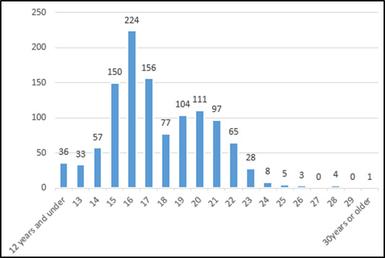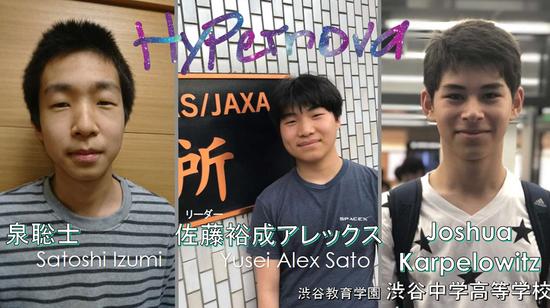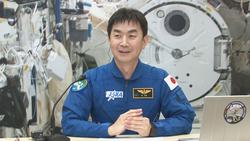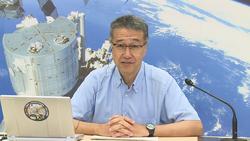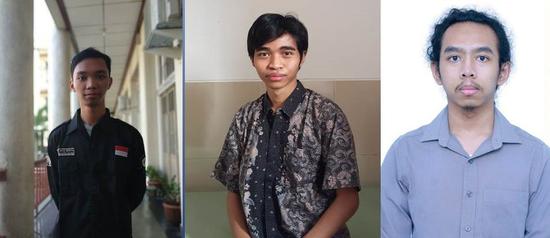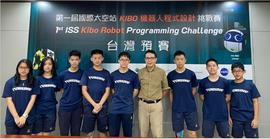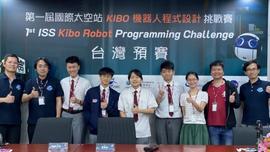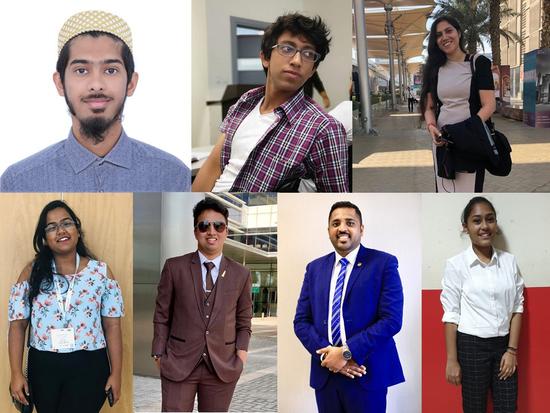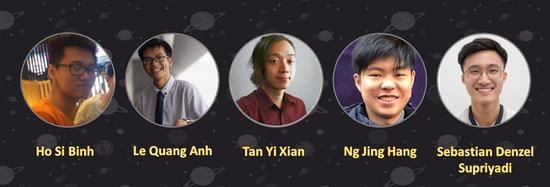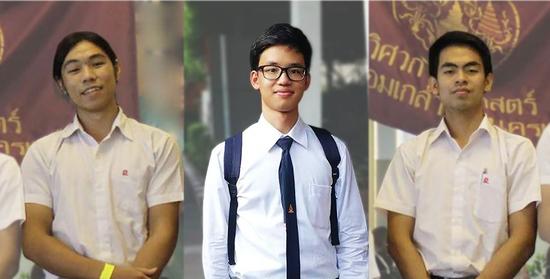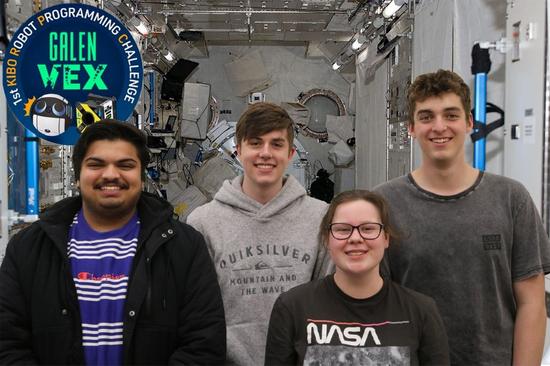This is an archive of information released in the past.
Disclaimer: It may contain broken links or outdated information. Some parts may not function in current web browsers.
*Visit https://humans-in-space.jaxa.jp/en/ for the latest information.

Kibo-RPC News: Preliminary Round was held in Each Country/Region!
Kibo-RPC participants include 313 teams and a total of 1168 students from 7 countries/regions. Table 1 shows the number of participating teams in each country/region, and Table 2 shows the number of participants by nationality. Regarding nationality, students from 15 countries/regions applied. We are very honored that so many people participated. Figure 1 shows a graph of the age of participants. Students from a wide range of ages applied, with the youngest being 9 years old.
Bangladesh did not participate in the preliminary round, but 46 teams (172 people) take part in it as observer.
| Number of participating teams | |
|---|---|
| Australia | 14 |
| Indonesia | 37 |
| Japan | 12 |
| Singapore | 3 |
| Taiwan | 58 |
| Thailand | 151 |
| UAE | 38 |
| Total | 313 |
| Number of participants by nationality | |
|---|---|
| Australia | 64 |
| Bahrain | 1 |
| Egyptian | 1 |
| Ethiopian | 1 |
| Indian | 10 |
| Indonesia | 148 |
| Japan | 45 |
| Jordon | 2 |
| Pakistan | 3 |
| Singapore | 6 |
| Taiwan | 243 |
| Thailand | 454 |
| UAE | 186 |
| United States of America | 2 |
| Vietnam | 2 |
| Total | 1168 |
A Preliminary Round of Kibo-RPC was held in each country/region by Point of Contact (POC), with unique events taking place in each location. Below is an introduction of these events, along with comments from the POC.
--International qualifier--
- Japan (Winner: Hypernova)
- Indonesia (Winner: Spacecat)
- Taiwan (Winner: Taipei Fuhsing Robotics Omega)
- United Arab Emirates (Winner: 999-IN-SPACE)
- Singapore (Winner: Moonmen Group)
- Thailand (Winner: won-SpaceY)
- Australia (Delegation: Galen VEX)
The winner from each country will participate in the Final Round in October. In the Final Round, their program will be installed on Astrobee on the ISS where they will compete for speed and accuracy.
We asked all participants to modify and create a better program for the Final Round to accommodate the differences between the simulation and ISS. We support everyone's efforts.
Finally, we hope that all teams who did not win the championship will be able to take advantage of what they have learned and experienced in this competition.

The Preliminary Round was a real-time event, with participants joining remotely. While waiting for the results to be announced, Astronaut Kimiya YUI, Professor Shinichi NAKASUKA from the University of Tokyo, and JAXA staff Mr. Kazuya SUZUKI and Mr. Yuta KAWAI gave a lecture to participants. The event was broadcast on YouTube, and a Q&A session was held in the YouTube chat section. The audience was made up of not only the many participants but also other people as the event was open to the public. The results of the top 4 teams were announced: in 1st place was "Hypernova", 2nd place belonged to "UT-kebab", 3rd place went to "tohoku", and in 4th place was "Cassiopeia". Before the results were shared, simulation videos of the top 4 teams were shown, along with explanations.
Japan winning team
Hypernova score CAstronaut Yui comment:
I was excited at the heated competition even in a severe environment with COVID-19. In particular, the winning team. It was amazing that the winning team participated because the school was closed due to this COVID-19 and they didn't want to waste their time. I was so impressed that the students voluntarily searched for something in this kind of difficult environment, and the team that willing to endure hardships won the championship. I want you to feel that through this event you can also engage in space development and that the universe is closer to us than you think. I hope that this event will help you become aware of your future potential, and that more young people will participate in the future and become a person who will lead Japan's space development and the world's space development. In the final round, try to help you imagine what the space environment is really like. In the final round, try to help you imagine what the space environment is really like. And if you don't give up, you will be connected to the next, and it will be useful experience in the future, so I would like you to challenge programming with free ideas without fear of failure.
Professor Nakasuka comment:
I was interesting that it was devising a strategy to devise each of the 10 teams that participated, such as try to as possible avoid this slowly rotation. Then, at this event, we tried the evaluation method 10 times in various situations and chose the worst one. This is very important in space, and it is important that space products operate remote place from the person who created them. Like the game story of this event is that it's far from the earth, so we can't repair or can't takeaway, and once it starts operating, we can't even anything. I set the evaluation criteria according to the very important things in this universe, but that was also the interesting part of this event. The final round takes place in space, so I'm both anxious and fun to see how the winning team will perform, and whether the robots that really move on orbit will do the same as they did in this simulation. In addition, we are looking forward to competing because we can create a program that takes advantage of the characteristics of each Asian country and each country.

Participants attended the preliminary round remotely, where LAPAN hosted participant programs and announced their rankings. During the program, LAPAN introduced participant video profiles and Kibo-ABC.
Indonesia winning team
Spacecat score CPOC comment:
Kibo-RPC is a great event to learn about robotic programming for students. Since the call for participation, it has attracted students' attention from high school level to college students. During the self-learning period, the participants were participated actively. Even though not all participant could join the preliminary round because of the pandemic situation. We hope there will be another Kibo-RPC program, it gains great interest and open large opportunity to enhance student's ability on robotic programming and broaden interaction between students from other countries.

At the preliminary round in Taiwan, the NSPO shared their impressions of the participant's programs while watching the simulation result at the venue. The ranking was decided by including a participant's score with verification being done in an interview session. The Award Ceremony was held on July 15.
Taiwan winning team
Taipei Fuhsing Robotics Omega score CPOC comment:
This is a very good competition organized by Kibo-ABC, we have very good experiences running the preliminary round. We are looking forward the Kibo-RPC to be continued and even to have other similar competition or collaboration programs held by Kibo-ABC. We hope we can adapt a Kibo-RPC web simulation in the local machine to do the domestic education promotion.
We did encounter many unexpected conditions during preliminary round. For example, the result may be affected by the CPU loading of the simulation machine, and there seemed to be difference in the time of a day; the program ran very smoothly in the earlier morning like 5 am but very hard to get through in the night times while maybe too many users running web simulation at the same time during the busy period. After the 1st Kibo-RPC, we should be more experience to organize the next one.
Finally, we are appreciated JAXA's efforts to organize such a great activity.
 United Arab Emirates
United Arab Emirates
Date: June 13, 2020

Date: June 13, 2020
The UAESE gave their impressions of the participant's program while watching the simulation result. The Director General of the UAESA and Astronaut Koichi WAKATA gave a speech to participants.
United Arab Emirates winning team
999-IN-SPACE score CPOC comment:
At the UAE Space Agency, we are committed to inspire the next generation to develop advanced, space-related skills. It was great to witness many applicants for the Kibo-RPC which is an indication of the high-level interest in this contest.
Congratulations to 999-IN-SPACE Team and we look forward to participating in the Final Round!!
 Singapore
Singapore
Date: June 15, 2020

Date: June 15, 2020
Singaporean students did not have much time to participate in the program but made a valiant effort, nonetheless. Although it was not possible for all participants to qualify, the program that was created in advance in the simulation environment was run. It was decided to do the ranking based on the score from the program.
Singapore winning team
Moonmen Group score D
In Thailand, because the number of participating teams was relatively high at 151, they held their own first Preliminary Session and narrowed the number of teams down to 20.
Results of first Preliminary Session
After narrowing down the field, the top 20 teams performed the second run and went through an interview session, and the finalist was decided by combined score from these two events. An award ceremony was held for the participants on June 16th. The ceremony started with greetings by NSTDA and JAXA staff, and a member of an associate company gave a speech at the venue. In addition, many kinds of awards were given; 8 teams received an award. The winner for the final round was won-SpaceY.
| Award | Team Name |
|---|---|
| Thailand winner | won-SpaceY |
| The Best Presentation Award | KMIDS13 |
| The Best of junior high school Award | TAQ Thailand Hushub |
| The Best of high school Award | INTENSION X Made in Heaven |
| The First Runner up Award | BFST Destiny |
Thailand winning team
won-SpaceY score CPOC comment:
The youths who took part in JAXA's Kibo-RPC showed great determination. They had an exciting feeling of being given the opportunity to program NASA's Astrobee robot. This programming experience will support them to develop various skills. Integrally both mathematics, physics, and computer language. They also develop important 21st-century skills like critical thinking and team collaboration.
We sincerely hope that the knowledge and experience that the youth gained from this competition will help them to use their skills to further strengthen the country's industrial technology in the future.
We would like to thank JAXA for organizing this event. We hope that Kibo-ABC's activities will continue to happen for the benefit of youth in member countries and youth around the world.
 Australia
Australia

In Australia, they could not hold the preliminary round due to COVID-19. However, Australian POC selected an Australian representative based on their ability and effort.
Australia finalist
Galen VEX score -Related links
| Copyright 2007 Japan Aerospace Exploration Agency | Site Policy |

